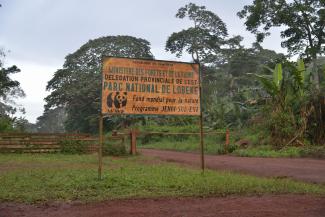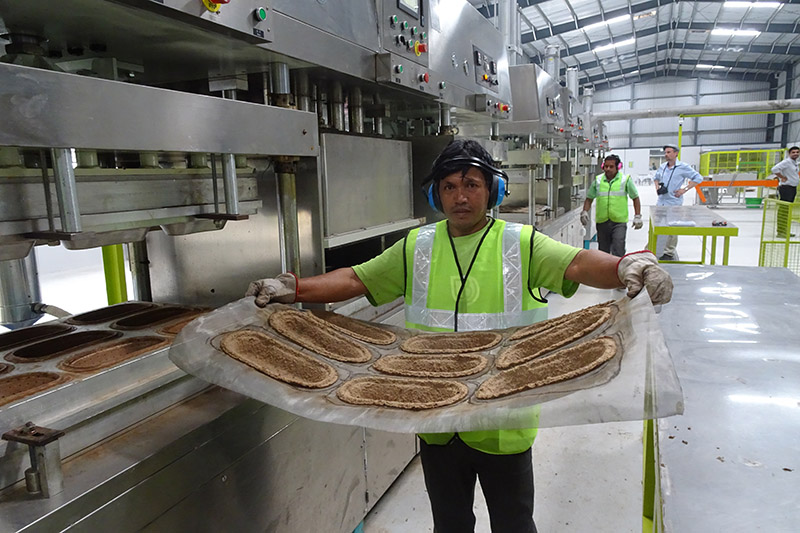Wildlife park
Conservation considered antagonist

The allegations are not new: in 2016, the non-governmental organisation Survival International submitted a formal complaint to the Organisation for Economic Co-operation and Development (OECD) against the World Wide Fund For Nature (WWF) over alleged human rights violations by park rangers (“eco-guards”).
A research team of the Centre for Rural Development’s postgraduate programme at Humboldt University Berlin spent three months in Cameroon last year to explore governance challenges of Lobéké National Park. The conflict between eco-guards and local communities were also an issue on site.
Community members reproached eco-guards with allegations of abuse. Remarkably, most interlocutors stated that they had not experienced direct violence by eco-guards themselves but based their claims on the accounts of others. However, reported incidents of direct violence have created an atmosphere of fear and apprehension. The eco-guards, too, reported feeling unsafe during their patrols. According to a young ranger their job is essentially a matter of life and death: “If I confiscate a weapon today, it is not the weapon that will kill me tomorrow.”
The following factors aggravate the conflict:
- The complaint mechanism set up in 2014 by WWF and the local NGO CEFAID to report human rights abuses by eco-guards is ineffective: Local people do not know of the mechanism’s existence.
- Safari companies have taken over law enforcement in the park’s buffer zone and cooperate with the Cameroonian military – without the involvement of trained eco-guards. According to accounts of local communities, the military regularly resorts to violence and prevents locals from accessing their agroforestry zones.
- The Cameroonian state neglects its eco-guards: The difficult working conditions cause a lot of frustration for the rangers. It is plausible that the eco-guards’ frustration negatively influences their behaviour.
The international attention on rights abuses in protected areas is welcome. But: the single focus on the conflict between eco-guards and local population appears misguided. It does not represent the biggest issues on the ground.
Protected areas are surrounded by so-called “buffer zones”. In Lobéké’s buffer zone, concessions of private companies overlap with local communities’ agricultural zones. The resulting legal uncertainty primarily benefits the more powerful safari, timber and mining companies, which severely restrict the access and usage rights of the local population. The restrictions that these concessions impose are hardly considered in the current media debate.
Furthermore, the conflict between eco-guards and local population is a symptom of a larger conflict: conservation is understood as antagonistic to socio-economic development. That is hardly surprising. The local population is extremely poor and depends on local resource use and hunting to survive. Both, however, are severely restricted. In addition, the state of Cameroon is largely absent in the park’s buffer zone, with little public investment in basic infrastructure like schools, hospitals and water supply. Most interviewees hold the park management accountable for covering their basic needs. The park management, however, is unable to cope with these high expectations, exacerbating the conflict between park authorities and local communities.
In light of the challenges, many call for an immediate stop to donor funding. The already chronically underfunded protected areas of the Congo Basin would then no longer be able to exist. This would have fatal consequences not only for endangered species like gorillas and forest elephants, but also for the local population. If dissolved, it is likely that the area of Lobéké National Park would either be leased to private companies or taken over by large-scale poachers. The latter group especially has no interest in respecting local usage rights – and eludes accountability.
Reference
Lambini, C., et al: Konflikte, Partizipation und Co- Management in Schutzgebieten: Eine Fallstudie über den Lobéké- Nationalpark in Kamerun (Conflicts, participation and co-management in protected areas: a case study on the Lobéké National Park in Cameroon – only in German), SLE Studienreihe 2018.
Henrice Stöbesand of the Centre for Rural Development at the Humboldt universiy in Berlin is a member of the team which investigated governance in the Lobéké National Park protected area.
henrice.stoebesand@posteo.de











